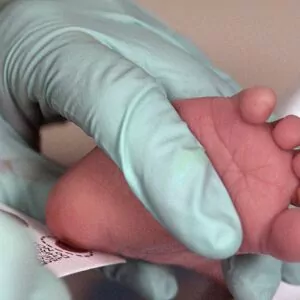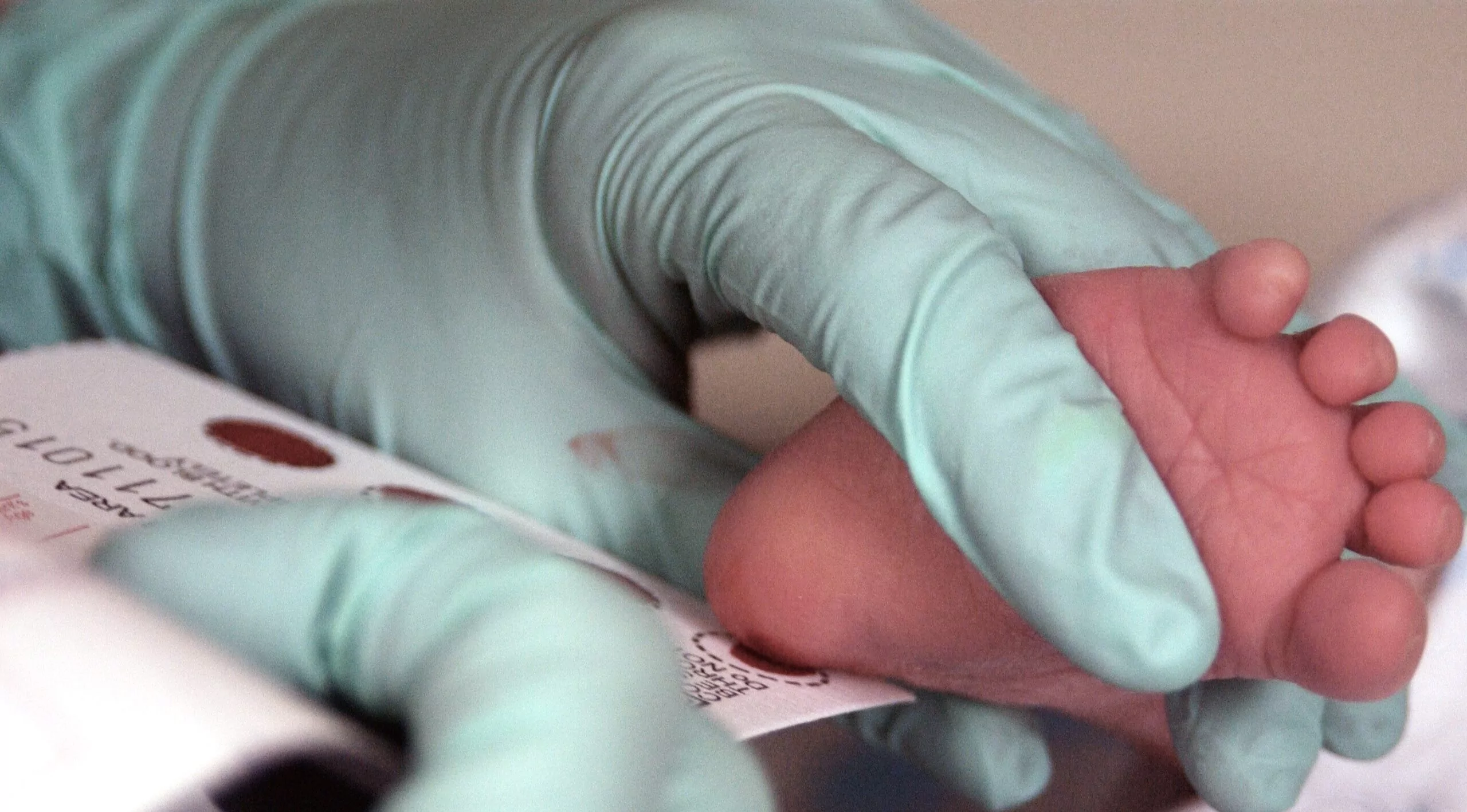Tune Into the Waters Renata Newborn Screening Podcast

The practice of screening all newborn babies at birth, for metabolic and a variety of other disorders, is something that most parents probably don’t ever think about, nor do they usually receive the test results. Why do advancements in newborn screening, advancements that affect the health and well-being of our children, seem to be unknown to so many? Tune in to this monthly podcast series produced by Waters Corporation and learn more about the practice of newborn screening as we unravel the science behind it.

The history of newborn screening
The ability to screen babies at birth for genetic disorders has revolutionized the ability to care for and improve the lives of many children. Early efforts at screening date back to the early 1960s, when Dr. Robert Guthrie, an American physician and scientist, developed the simple and inexpensive “Guthrie Test” to test for phenylketonuria (PKU) during the first days of life.
PKU is a serious metabolic disorder in which patients cannot break down an amino acid called phenylalanine. Untreated, PKU leads to severe developmental delays and mental retardation. However, if identified, early treatment and dietary modification enable children to develop normally and to go on to lead healthy lives.
This early newborn screening test may have seemed a bit cumbersome by today’s laboratory standards, but its elegant simplicity is its most enduring characteristic and it remains the hallmark of all newborn screening tests performed today. Newborn screening tests must be simple, inexpensive, and able to screen large populations of newborns. The goal is to make sure that availability and economics do not limit access and use, therefore leading to missed diagnoses. The ability to screen large populations of newborn babies has had a profound positive impact on the lives of millions of people.
How tandem mass spectrometry revolutionized newborn screening…
As with most technologies, early versions of newborn screening tests have evolved over time. The need to keep testing inexpensive, widely available, easy to use, and applicable to multiple disorders, led to the development of tandem mass spectrometry (MSMS) based tests that revolutionized the field in the mid-1990s.
Dr. David Millington of Duke University learned of a child who was rescued from near death by a revolutionary therapeutic intervention. This, and a challenge from the physician who treated the child, inspired him to devise a way to measure certain metabolites in small blood spots collected from children at birth.
In doing so he and his team created the first front line test utilizing MSMS to measure acylcarnitines to detect inherited disorders of fatty acid and branched-chain amino acid catabolism. For his work, Dr. Millington has received several awards including the prestigious International Society for Newborn Screening (ISNS) Robert Guthrie Award in 2006 and the inaugural MSACL Distinguished Contribution to Clinical Mass Spectrometry Award in 2015.
Mass spectrometry-based newborn screening as the standard
The application of mass spectrometry to newborn screening accelerated quickly. Programs were spreading and large programs had been developed in Sydney, Australia, New England, and North Carolina by the late 1990s.
In addition to more widespread use, testing also expanded to include a panel of 34 inherited disorders. This was so successful in the U.S. that the Centers for Disease Control and Prevention called it one of the 10 greatest public health achievements of the first decade of the 21st century. The ability of mass spectrometry to screen for an entire panel in a single, rapid, and inexpensive analysis made this expansion possible, but it also brought about some logistical issues.
As a result of the increased testing, large volumes of complex data were being generated that needed management and interpretation. Dr. Mike Morris, along with other leaders in the field, worked together to develop software systems to meet this need.
Today, mass spectrometry-based newborn screening tests for more than 30 inherited metabolic disorders, are mandated in many developed countries and is experiencing rapid growth in the countries of Asia and South America. It is now considered to be the standard of measurement for this very important public health function.
Tune in to our monthly Renata Newborn Screening Podcast as we dive into the science and history behind this incredible, life-saving technology!
Episodes available now:
- The application of tandem mass spectrometry to NBS for amino acids and acylcarnitines – An interview with David Millington
- Let’s start from the start: A review of Dr. Robert Guthrie’s 1963 paper on PKU screening
- Trailer for the Renata Newborn Screening Podcast
Popular Topics
ACQUITY QDa (17) bioanalysis (11) biologics (14) biopharma (26) biopharmaceutical (36) biotherapeutics (17) case study (17) chromatography (14) data integrity (22) food analysis (12) HPLC (15) LC-MS (22) liquid chromatography (LC) (20) mass detection (16) mass spectrometry (MS) (54) method development (13) STEM (12) sustainability (12)


